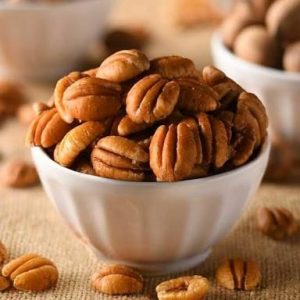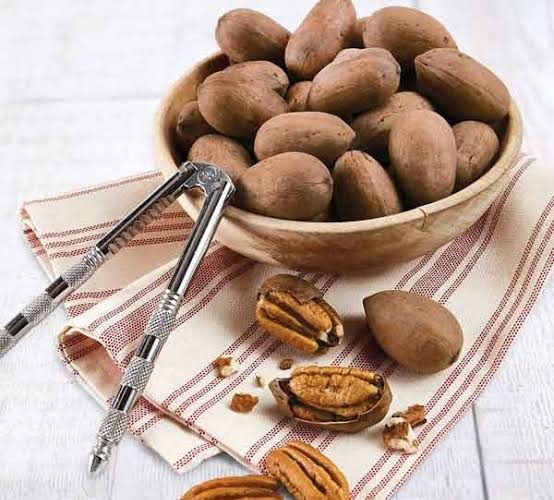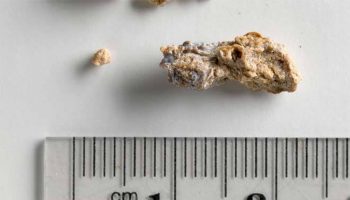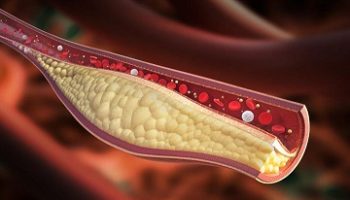PECANS: BENEFITS
OVERVIEW

Pecans are a type of tree nut native to North Mexico and southern United States in the region of Mississipi River.
Their rich and buttery flavor nakes them a common ingredient in appetizers, desserts, and main dishes alike.
Although they contain a long list of essential nutrients, they’re also high in calories and fat, causing many to wonder whether they’re healthy.
Let’s take a closer look at the nutrients contained in pecans
NUTRIENTS
Pecans are rich in a number of important nutrients.
In particular, they’re a good source of fiber, along with copper, thiamine, and zinc.
1 oz (28 grams) of pecans contains the following nutrients
Calories: 196
Protein: 2.5 grams
Fat: 20.5 grams
Carbs: 4 grams
Fiber: 2.7 grams
Copper: 38% of the Daily Value (DV)
Thiamine (vitamin B1): 16% of the DV
Zinc: 12% of the DV
Magnesium: 8% of the DV
Phosphorus: 6% of the DV
Iron: 4% of the DV
Copper is an important mineral involved in many aspects of your health, including nerve cell function, immune health, and the production of red blood cells.
Meanwhile, thiamine, or vitamin B1, is essential for converting carbohydrates into energy to help fuel your body (3Trusted Source).
Zinc is another key mineral found in pecans, and it’s necessary for immune function, as well as cell growth, brain function, and wound healing.
BENEFITS
Pecans have been associated with numerous health benefits. Some are still theory, while some have been proven.
IMPROVES HEART HEALTH
Pecans are a great source of monounsaturated fatty acids(MUFAs), a type of fat that may benefit heart health .
Accoring to a study, 204 people with coronary artery disease, which is characterized by the narrowing of arteries, found that eating 1oz (30 grams) of pecans daily for 12 weeks improved the ratio of total cholesterol to HDL (good) cholesterol in the blood.
Other research shows that an increased intake of tree nuts, including pecans, may be linked to reduced levels of total cholesterol, LDL (bad) cholesterol, and triglycerides — all of which are risk factors for heart disease.
One small study in 26 adults with overweight or obesity found that eating a pecan-rich diet for 4 weeks improved the body’s ability to use insulin effectively. Insulin is the hormone that transports sugar from your bloodstream into your cells.
But remember, a handful of pecans contains a great amount of calories.
Similarly, a review of 12 studies showed that adding tree nuts to your diet could help lower levels of hemoglobin A1C, a measure of long-term blood sugar control (12Trusted Source).
PROMOTED BRAIN FUNCTION
Pecans are brimming with nutrients that may benefit brain function, including mono- and polyunsaturated fatty acids.
Monounsaturated fatty acids, in particular, have been linked to decreased mental decline and reduced inflammation.
Recently, a large study in over 15,000 women lasting over 40 years linked a higher consumption of nuts with improved long-term cognition.
Similarly, a study in 4,822 older adults showed that those who ate at least 1/3 0z (10 grams) of nuts per day were 40% less likely to have poor cognition.
That said, more research is needed to evaluate how pecans specifically may affect brain function.
POTENTIAL DOWNSIDES
Although pecans have been linked to several potential health benefits, there are some downsides to consider.
First, those with an allergy to tree nuts should avoid them, along with other types of tree nuts like almonds, cashews, chestnuts, and walnuts.
Keep in mind that they’re also relatively high in calories, packing nearly 200 calories in each 1-ounce (28-gram) serving.
As such, eating multiple servings can increase your daily calorie intake, which could contribute to weight gain if you don’t make other adjustments to your diet or level of physical activity.
For this reason, its adviceable to moderate your intake, especially if you’re trying to lose weight.
Moreover, it’s best to opt for natural pecans without added sugar or salt.
HOW TO ADD PECANS TO YOUR DIET
Pecans are loaded with essential nutrients and can be an excellent addition to a well-rounded, healthy diet.
Be sure to pay attention to your portion sizes and stick to around 1 ounce (28 grams), or about 20 pecan halves, at a time.
Try sprinkling a handful of these tasty nuts onto your next yogurt parfait, salad, or oatmeal for extra crunch and nutrients.
They also work well in trail mix or chopped up in baked goods like muffins, pancakes, or banana bread.
Alternatively, enjoy raw pecans on their own for a quick, convenient, and nutritious on-the-go snack.
Pecans are a type of tree nut that’s rich in several key nutrients, including fiber, copper, thiamine, and zinc.
They’ve been associated with many potential health benefits, including improved blood sugar control, heart health, and brain function.
You can enjoy them in moderation as part of a nutritious diet — and in a number of different recipes.
BOTTOM LINE.
Pecans are amazing tree nuts with so much health benefits.
They could be incoporated into the diet or eaten alone.
Its important to be aware that a small amountof them contain so much calories, so its best you stick to moderation if you’re on a weightloss program.
Source: https://www.healthline.com/nutrition/are-pecans-good-for-you#bottom-line






